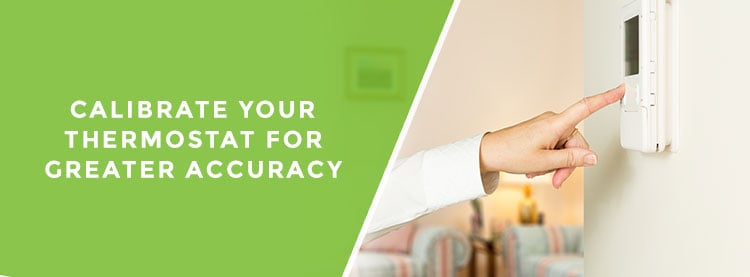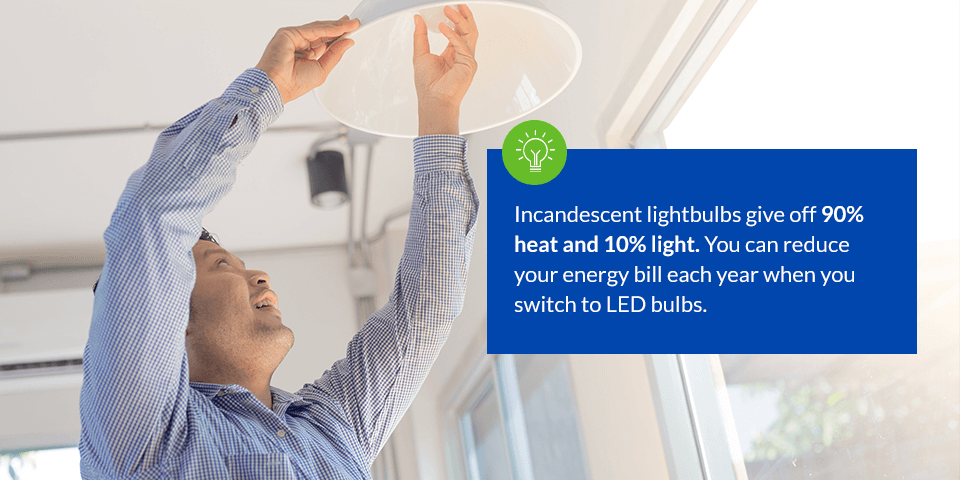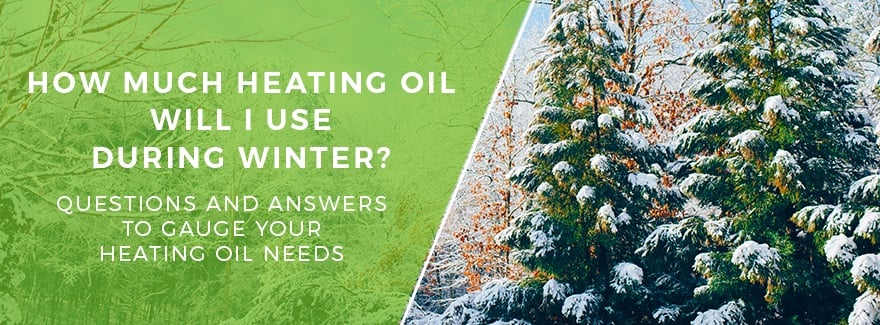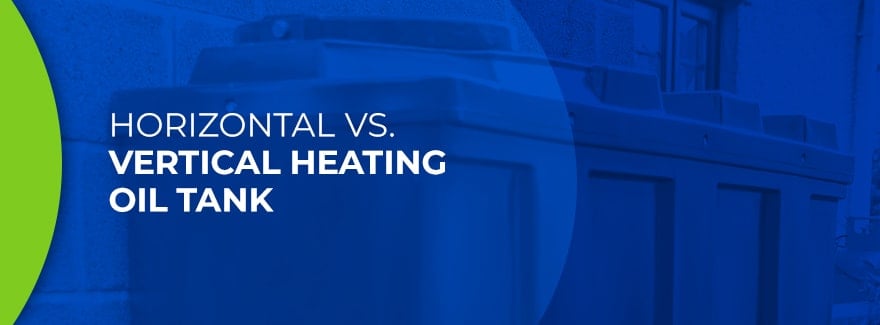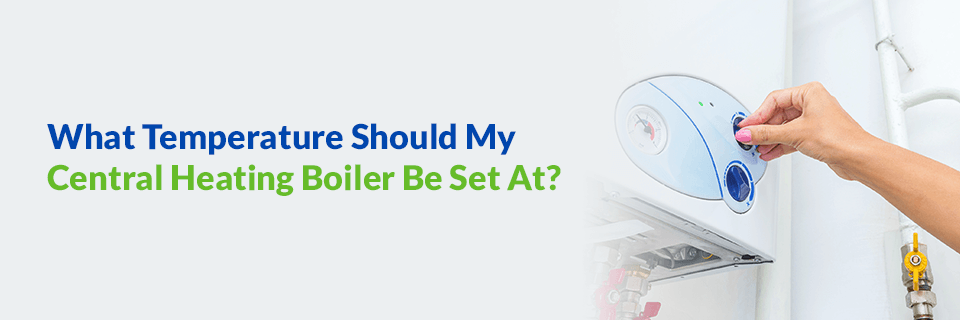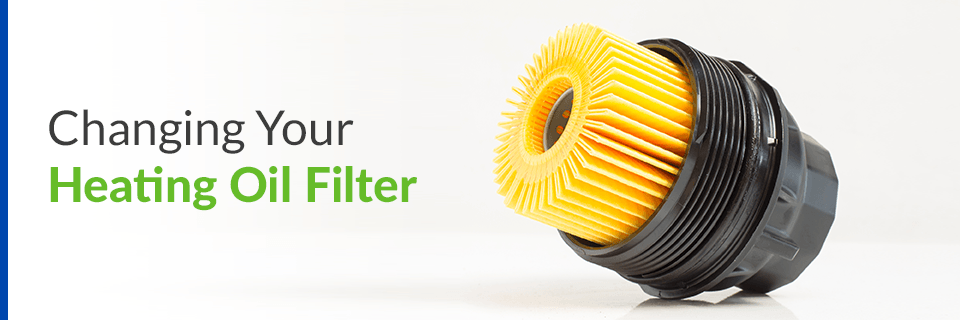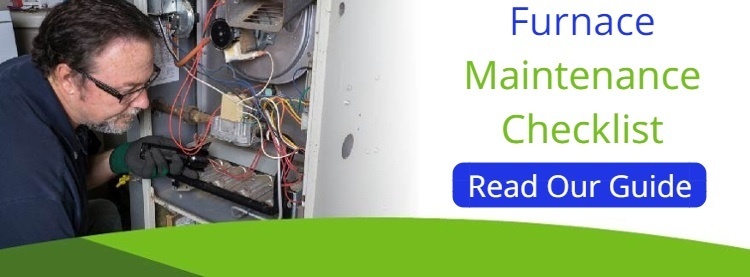A thermostat is the main point of interface between you and your heating, ventilation, and air conditioning (HVAC) system. When your thermostat is accurate, it’s easier to make fine adjustments that will keep your home comfortable and your utility bills low. Like all components of your home HVAC system, thermostats require periodic repairs and maintenance to keep working their best over the long term. Here’s what you need to know to calibrate your thermostat.
In the summertime, A/C, or air conditioning, is essential for maintaining a comfortable home. We depend on this utility to help us sleep better and work from home at the hottest times of the year. However, running your A/C too often can increase your utility bill and have a detrimental effect on the environment.
Topics: heating systems, air conditioning
Winter may technically be three months on the calendar, but everyone knows the chilly or freezing weather often lasts longer than that.
Topics: heating oil, heating systems
In a world where many energy options exist for heating your home, you may find yourself considering heating oil. Or, perhaps you've been using heating oil for years and have decided to upgrade your fuel storage tank.
- Heating Oil Tank Locations
- When to Use a Horizontal or Vertical Heating Oil Tank
- Benefits of Horizontal and Vertical Fuel Storage Tanks
- Choose Smart Touch Energy for Your Heating Oil Needs
Topics: heating oil, heating systems
It can be challenging to determine the best temperature for your central heating boiler. With fluctuating exterior temperatures and varying hot water needs, the settings for your boiler may differ greatly from the next person. Knowing what type of central heating boiler you have in your home and typical temperature settings will help you determine the best temperature for your boiler or hot water cylinder. Learn what the recommendations are so you can heat your home efficiently.
Topics: heating systems
Heating your home is essential during the colder months — especially in the Northeastern United States, where winter can change from mild to tumultuous overnight. When cold weather approaches, ensure you are ready to keep your family warm with an adequate supply of home heating oil. To prepare, learn more about the different types of heating oils and what they're used for. Take a closer look at the difference between diesel fuel and No. 2 fuel oil, since they have the biggest impact on your needs for heating your home this winter.
Topics: heating systems
Heating is a significant undertaking in most homes. Heating costs more and consumes more energy than any other household system, generally accounting for around 42% of a home's utility bill. You need your system to run efficiently to give you the most value for your investment.
- What Is a Heating Oil Filter?
- What Are the Benefits of Changing Your Heating Oil Filter?
- How Often Should You Change Your Heating Oil Filter?
- How Can You Tell When Your Heating Oil Filter Needs to Be Replaced?
- How to Change Your Heating Oil Filter
- Tips for Changing Your Heating Oil Filter
- Partner With Smart Touch Energy for Your Heating Oil Needs
Topics: heating oil, heating systems
Your home's heating, ventilation and air conditioning (HVAC) system needs regular maintenance all year long. When you keep up with your air conditioner and furnace, you can save money on your utility costs and have a more reliable unit. This guide will explain the importance of annual HVAC maintenance and help you develop a plan for how to take care of your heating and cooling appliances each season.
Topics: heating systems, air conditioning, fall fun
The air inside your home could be two to five times more polluted than the air outdoors due to dust, pet dander, cleaning products and bacteria. Low indoor air quality (IAQ) can worsen allergies and upper respiratory conditions, and a moist environment can keep mold and bacteria in your living space, increasing your potential for getting sick. Since you spend a lot of time at home, it is beneficial to consider ways to improve the air you and your family inhale each day — and one way is with the help of your heating, ventilation and air conditioning (HVAC) system.
Topics: heating systems
Are you ready for autumn? Although you've already packed up your summer clothes and set up your fall decorations, there's still much to do to prepare for the colder temperatures that accompany the season. Even though cold temperatures are right around the corner, many homeowners ignore fall furnace maintenance. In fact, fall furnace maintenance is exceedingly important, because no homeowner wants to be without heat on a chilly autumn night.
Topics: heating systems


